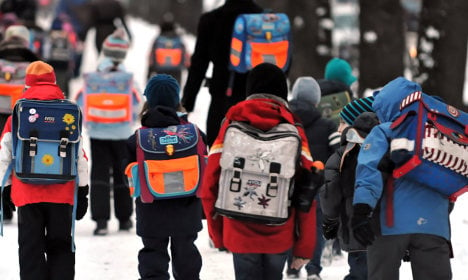“Not a single German state got a plus mark in all categories,” research leader Wilfried Bos told Der Spiegel magazine. German education is run by the federal state governments, leading to stark differences in various regions.
Those states, such as Berlin, which managed to offer more equal opportunities, did not provide a good standard of education.
And the states that offered higher standards – like Bavaria – were still desperately unfair to children from disadvantaged backgrounds.
Bos and his team used four indicators to assess the fairness and excellence of schools – integration and accessibility to assess fairness, as well as achievement and academic achievements to indicate excellence.
The results showed that children faced different regimes of unfairness depending on where they lived.
Children from rich families in Bavaria, Baden-Württemberg, Lower Saxony, and Schleswig-Holstein were six times more likely to get into Gymnasium, Germany’s highest level of secondary school, than children from working class or immigrant families – despite similar abilities.
And children in Hesse, Brandenburg, Hamburg and Bremen were disadvantaged in school if they came from families with fewer books in their homes. The researchers, using the number of books per household to indicate how educated families were, found that children with less than a hundred books in their homes, were around two years behind their peers.
In some states – Saarland, Baden-Württemberg, Bavaria, and Lower Saxony – fewer than a quarter of the children made it into the top section of the segregated high school system.
“The German school systems offer children and young people very different chances to develop their abilities,” said Bos.
“We believe the state is responsible for creating an equality of opportunities in schools,” added Bertelsmann board member Jörg Dräger, who commissioned the report. “But it is not doing that enough.”
Dräger also slammed state politicians for failing to discuss the subject. “The readiness of the state ministers to discuss equal opportunities transparently stands at about minus 100,” he said.
The study also had a damning assessment of so-called Förderschulen, the schools meant to help children with physical or learning disabilities. The report found that these kids almost never made it out into the main system.
The study collected data from the Institute for Quality Development in Education (IQB), the German Federal Statistics Office, and the Pisa study organized by the Organization for Economic Cooperation and Development (OECD).
The report comes ten years after a Pisa study came to a similarly damning conclusion.
The Local/bk



 Please whitelist us to continue reading.
Please whitelist us to continue reading.
Member comments